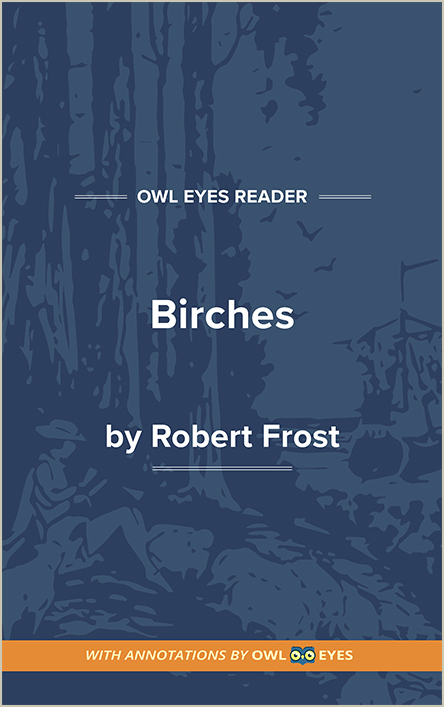Analysis Pages
Tone in Birches
Tone Examples in Birches:
Text of the Poem
🔒"One could do worse than be a swinger of birches...." See in text (Text of the Poem)
"like a pathless wood Where your face burns and tickles with the cobwebs Broken across it,..." See in text (Text of the Poem)
"So was I once myself a swinger of birches. And so I dream of going back to be. ..." See in text (Text of the Poem)
"One by one he subdued his father's trees..." See in text (Text of the Poem)
"I should prefer to have some boy bend them..." See in text (Text of the Poem)
"when Truth broke in With all her matter-of-fact about the ice-storm..." See in text (Text of the Poem)
"But swinging doesn't bend them down to stay As ice-storms do...." See in text (Text of the Poem)

